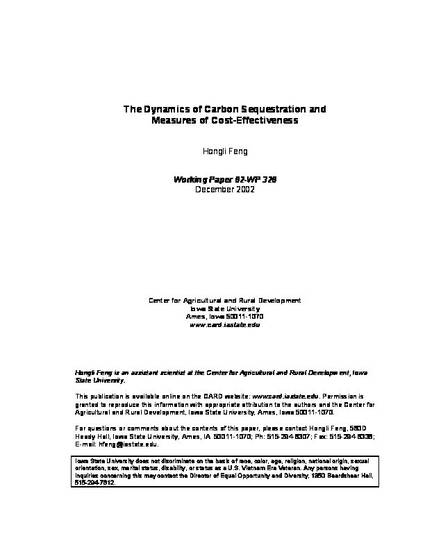
Unpublished Paper
The Dynamics of Carbon Sequestration and Measures of Cost-Effectiveness
CARD Working Papers
Publication Date
12-1-2002
Series Number
02-WP 320
Abstract
The cost-effectiveness of carbon sequestration alternatives has often been discussed in the economics literature on sequestration. Average or marginal costs and annual carbon supply curves are often used as measures of cost-effectiveness. Sequestration is inherently a temporal process and how time is accounted for in the various measures of cost-effectiveness is critical for appropriate cross-study comparisons. I examine three factors that affect the magnitude of measured cost-effectiveness: the study period, the sequestration path, and the discount rate if discounting is used. The extent to which these factors affect the consistency of cross-study comparisons is empirically illustrated.
Disciplines
Citation Information
Hongli Feng. "The Dynamics of Carbon Sequestration and Measures of Cost-Effectiveness" (2002) Available at: http://works.bepress.com/hongli-hennessy/28/
